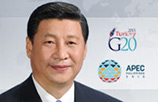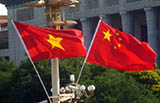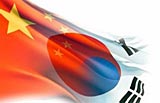China and Italy, two ancient cultures linked by the past
By Cesare Romiti (chinadaily.com.cn) Updated: 2015-11-18 22:03China and Italy share a similar background - two ancient cultures, which for centuries have developed a closeness that was initiated with the voyages of Marco Polo and Father Matteo Ricci, a Jesuit priest.
That bond has, in recent years, become stronger, thanks to a ten-year strategic partnership and important events like the visit of Chinese Premier Li Keqiang to Italy and Italian Prime Minister Matteo Renzi's trip to China last year. The relationship has been strengthened by the arrival in the peninsula of influential official delegations and a steady stream of Chinese visitors to Expo 2015 in Milan, which has seen China among its main participants, with its three official pavilions which are hosting displays from the different Chinese provinces.
This has allowed us to lay a good basis for future trade, investments and growth opportunities for our countries and for their companies. One of the greatest challenges is to develop the interchange between Italy and China.
The business exchanges in the first quarter of the year decreased slightly, but the growth of Chinese direct investments in Italy and Italian investments in China (235 companies with a Chinese participation in Italy, 2000 of Italian subsidiaries in China) remains at significant levels, confirming - if ever it was needed - the great economic opportunities between the two countries.
I discovered this fascinating country many years ago and since then I have realized that China is a reality to be carefully observed, a fresh chance for Europe and especially for Italy. It is an opportunity that will be made even more concrete by the ambitious program of infrastructure, "The New Silk Road", launched by the Chinese President Xi Jinping in 2013.
I realize that the interaction between our economic systems is not easy. The China our eminent ancestors knew was quite different from the country we know today. We cannot speak any more about "one China" but about many different Chinas, we really need to learn about the "System China", a reality made up of many provinces that offer many opportunities for those who are able to grab the fruits of their differences. Those who went as pioneers during the past decades have developed very strong competitive advantages. The China of today continues to offer huge opportunities but needs well-defined preparation and strategies.
More than ever it is vital to understand this reality and be prepared to interact with a world so complex and different from our world through training and information. Since China is a constantly evolving country, it is not easy to respond to its changing needs. Thus, although Sino-Italian relations have a history of centuries, not everyone today can easily succeed in China. There are different reasons, because China is so vast, different internally and undergoing even more complex changes that are all slowing the process; add to that the range of very different languages and cultures.
The interaction between Chinese and westerners, including Italians, is fascinating but certainly not easy: under this point of view, it is increasingly necessary to have "ad hoc" training and a consistent and complete exchange of information. All these are the guidelines that for the past twelve years have informed the work of the Foundation I created in 2003,and have enabled it to become a reliable and competent partner for both Italians who look at China and the Chinese, who are coming in increasing numbers to our country: only a deep knowledge of the two realities can contribute to the development of economic and cultural relations between the two countries.
Paths such as training and information, appropriate strategies and attention to location and localization: these are the keys to success in a country that is not only an opportunity but also a strategic imperative, as it is the largest domestic market in the world. In order to gain access, you have to adapt to an evolving country, managing to be part of the locality without losing your identity. In summary, it needs an ability to meet and exchange dialogue with Chinese partners and representatives - in other words act like Chinese - while keeping intact some of your own character.
Only a few foreign companies are today adequately prepared for this changing environment without practical help such as that offered by our Foundation. We work as a "bridge", no longer limited to promoting and supporting Italian companies investing in China, but also helping those Chinese companies which more and more choose Italy as destination for their investments.
From 2012 to 2014, Chinese investor groups in our country increased from 79 to 123, with the number of employees exceeding 13,000; revenue almost doubled, from 2.665 billion euros to 5.499 billion euros. These numbers, along with those of Italians that invested in China, are encouraging and confirm the intensification of bilateral trade between the two countries.
Cesare Romiti is chairman of the Italy-China Foundation. The views expressed are his own and not those of China Daily.






